Is China ready to lead?
China is far from possessing the ability, experience and resources to maintain and safeguard the global order. Thus, it is in its own interest to continue supporting the US as the global leader. Even so, amid a challenging international climate, China can no longer maintain a low profile. It needs to improve its global image and quell fears of the China threat. More importantly, the CCP should resist its internal urge to go all out on its fighting philosophy, which may likely win itself more enemies than friends.
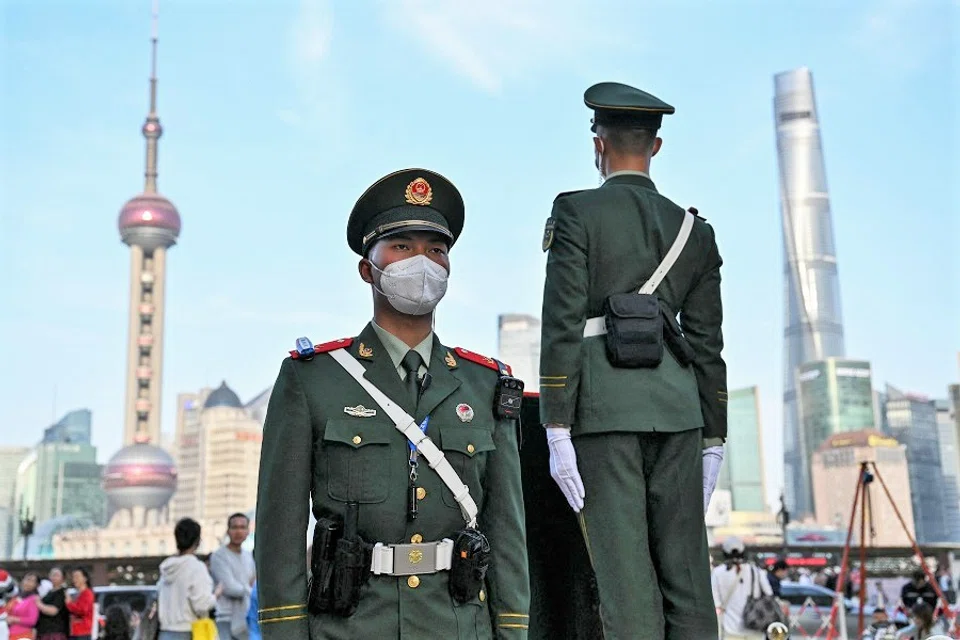
Playing a leading role in global affairs is the fundamental duty of a major power, yet few major powers have lived up to the task throughout history. All things considered, the US has done pretty well in this regard.
Former Chinese leader Deng Xiaoping flatly refused this role. As events unfolded in 1990, he articulated China's foreign policy, famously put forward in 28 Chinese characters, "observe calmly, secure our position, deal with affairs calmly, hide our capacities and bide our time, maintain a low profile, never claim leadership, and make a difference" (冷静观察,稳住阵脚,沉着应付,韬光养晦,善于守拙,决不当头,有所作为).
History seems to be repeating itself. The situation now is disconcertingly similar to what happened then, with developed nations joining forces to sanction the "evil" regime under the Chinese Communist Party (CCP), just that "Xinjiang" has replaced Tiananmen.
Stronger China and more unified West
However, there are two differences. First, China is a much more powerful nation today. China's GDP in 1990 was US$383 billion, or US$333 per capita GDP. In 2021, its GDP was US$18 trillion and per capita GDP was US$12,656. Some believe that today's China no longer needs to "hide our capacities and bide our time" and it should be able to make a huge difference.
The second difference is more detrimental to China. In 1990, ten years after China's reforms and opening up to the world, the political elites of the West anticipated China to become more westernised. Bowing to tremendous domestic pressures and the US Congress, the US administration under George H. W. Bush reluctantly imposed sanctions on China. But at the same time, it secretly despatched special envoys to Beijing to discuss maintaining bilateral relations. It was much the same with other Western countries. Japan did not even bother putting on an act and soon resumed its trade and economic ties with China.
Today, however, the Western elites and the public at large are highly united. They have not only given up on changing China, but also shared the view that China's emergence poses a great threat to their way of life and the liberal global order. To many of them, this is a matter of life and death. Compounded, these two differences have intensified the unrelenting pressure on China.
While China has made great progress in real terms, there has been little improvement in its reputation in the past 30 years.
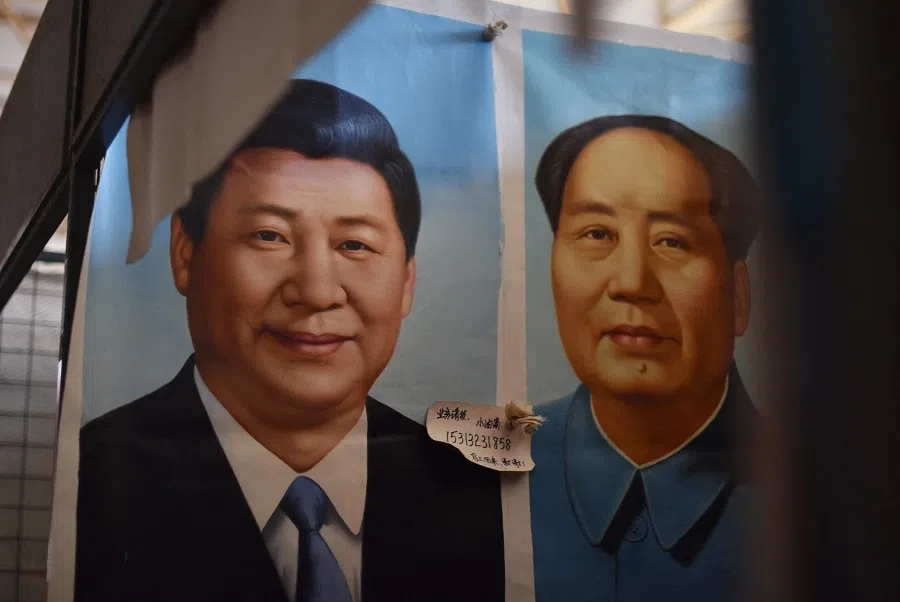
Should China return to Deng's foreign policy, or stop maintaining a low profile and make bold moves? The dilemma is that China may not be able to maintain a low profile for long, yet it may also not be assured of success by making bold moves. This article assumes that China can no longer maintain a low profile, and analyses the pros and cons of taking on a leadership role in the world.
China's communist heritage revived
Regardless of its choice, the CCP must confront the same issue as in 1990, which is the ill repute imposed upon it by the West. While China has made great progress in real terms, there has been little improvement in its reputation in the past 30 years.
This is due to the CCP's heritage. It is widely believed that "China as a communist state" has long existed only in name. In reality, China is now more capitalist in some aspects than capitalist nations themselves. Deng's "hide our capacities and bide our time" may have succeeded in masquerading China to the world, but the CCP unexpectedly returned to emphasising its political heritage - the new wine of China's achievements from reform and opening up have been repackaged in old communist bottles.
The CCP seems to have forgotten that the West had waged a Cold War with the communist bloc for over four decades. Hence, communism's persistent notoriety is naturally pinned on the CCP.
This is indeed unfair because China today is drastically different from the Mao era. However, this matters little; what really matters is that this notoriety has become the reality of global politics. For example, due to US bipartisan consensus regarding the CCP's malevolence, any moderate views of China are taboo, let alone friendly comments.
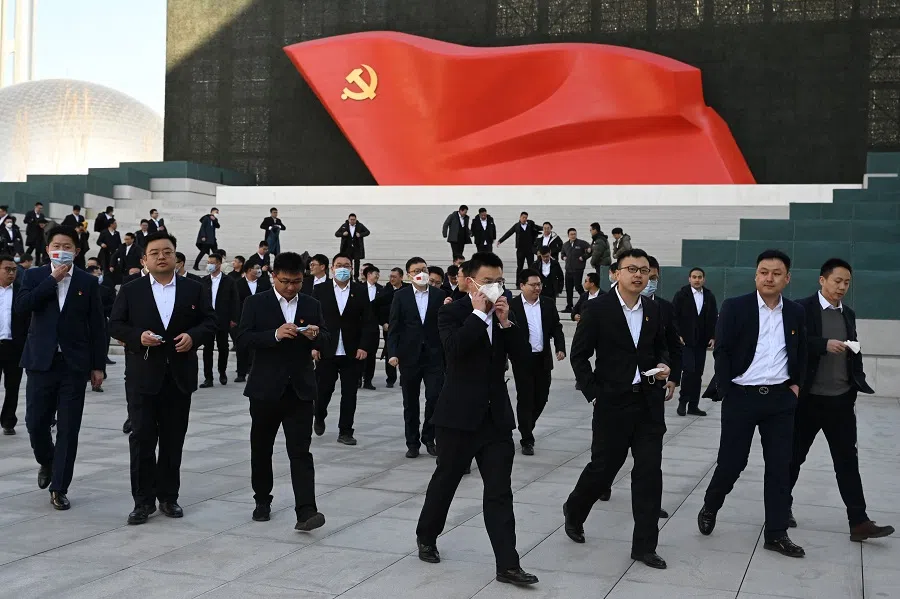
Recently, former US Secretary of State Henry Kissinger made some anti-China remarks and was criticised by some in China, accusing him of "finally revealing his true colours". However, he has no choice in the context of US public opinion, or risk being marginalised and losing his ability to influence events. The way to deal with unkind remarks is not reciprocating measure for measure, because in the words often attributed to Mahatma Gandhi, "An eye for an eye makes the whole world blind." This is probably why China's wolf warrior diplomacy is ineffective.
As China does not possess enough ability, experience and resources to maintain and safeguard global order, it is in China's interests to continue supporting the US as the global leader.
China is not ready to lead?
There are many reasons for China not wanting to assume leadership. First, doing so will be regarded as challenging the US.
According to Deng's observations, most of the nations that fell in line under US leadership after World War II had become prosperous, while followers of the Soviet Union were impoverished. After its reforms and opening up to the world, China had cosied up to the US and benefited much from the global order that the US had established and maintained. However, China's emergence as a major power has altered the attitude of the US, from generosity and magnanimity to being calculative, to full scale suppression.
While China-US relations have changed, it does not mean the two nations will become enemies. As China does not possess enough ability, experience and resources to maintain and safeguard global order, it is in China's interests to continue supporting the US as the global leader.
Second, with changes unseen in a century, the world's future is uncertain. Anything can happen, and may be uncontrollable, even for the US. While China can manage domestic matters well, it is unclear whether it could manage global affairs. Indeed, China must be very cautious with the unknown.
... once a nation becomes a superpower, arguments for "differentiating domestic and foreign affairs" and "non-interference in domestic affairs" become pointless
Third, China still lacks the widespread acceptance necessary for effective leadership. Acceptance by the third world matters much less than developed nations. Despite the arrogance and domineering nature of the US towards other nations, even those who criticise the US still want to live in the country because they feel that life is more secure and predictable there. A nation's real soft power emanates more from within than from without.
Furthermore, once a nation becomes a superpower, arguments for "differentiating domestic and foreign affairs" and "non-interference in domestic affairs" become pointless because people would anticipate a superpower's actions based on its domestic affairs. They will use that to decide whether the superpower is acceptable or a threat, and whether the global order will be conducive for them under its leadership. Clearly, China is not yet ready.
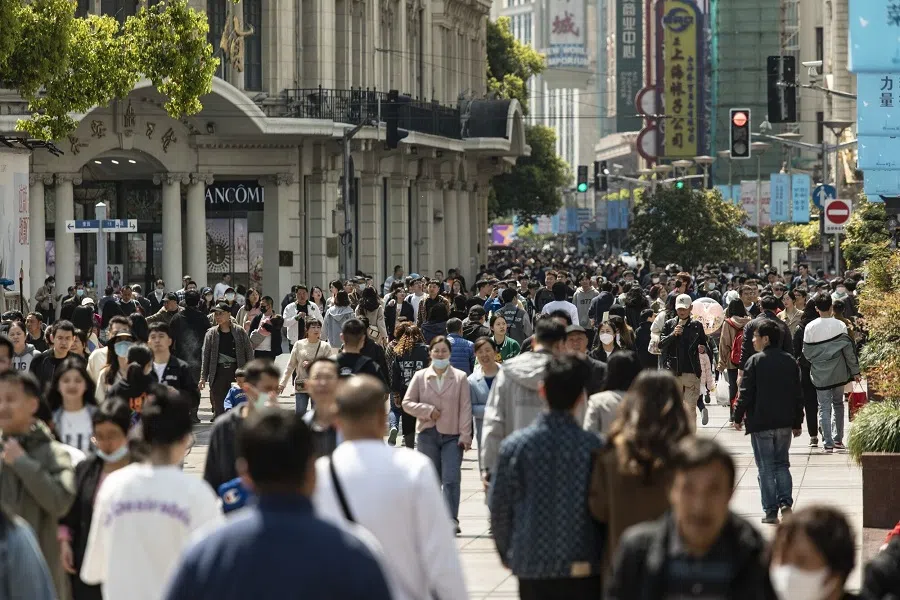
Finally, global leadership generates endless trouble and obligations. The era of China amassing great wealth quietly coincides with China's most rapid emergence. In the process, the interests of the leaders and the people do not always coincide.
Leaders participate in international affairs to make their mark in history. Many world leaders indulge in such actions but they let their people bear the costs. For example, according to US economist Joseph Stiglitz and others, the total cost of waging the Iraq War to the US alone was US$3 trillion, all of which was borne by the people at the expense of other pressing domestic matters. This has to be considered an important reason for the decline of US supremacy and domestic political turbulence.
China's potential in rebuilding the global order
That said, China assuming a global leadership role is not without its advantageous conditions. For example, the global order established and spearheaded by the US after World War II is currently disintegrating and being restructured, and the US itself is dissatisfied with being overburdened.
A growing number of third world nations are urging a review of the global order currently dominated by the West and hoping that China would take the lead. Having lost confidence in the development model of the West which has created political and economic difficulties, many third world nations seek a change and a different way out.
Even Kissinger sees the potential for China to be a major force in rebuilding the peaceful global order - a force sorely lacking in these troubled times.
China has wasted no time in advocating "Chinese-style modernisation" (中国式现代化), "Chinese input" (中国方案) and "Chinese insights" (中国智慧), proposing concepts such as "a new type of major-power relationship" (新型大国关系), "a new form of international relations" (新型国际关系) and "a new vision of security" (新安全观), as well as establish the Belt and Road Initiative, the Shanghai Cooperation Organisation, the BRICS, the Asian Infrastructure Investment Bank, and the Silk Road Fund.
More recently, China has successfully mediated the rapprochement between Saudi Arabia and Iran. Even Kissinger sees the potential for China to be a major force in rebuilding the peaceful global order - a force sorely lacking in these troubled times.
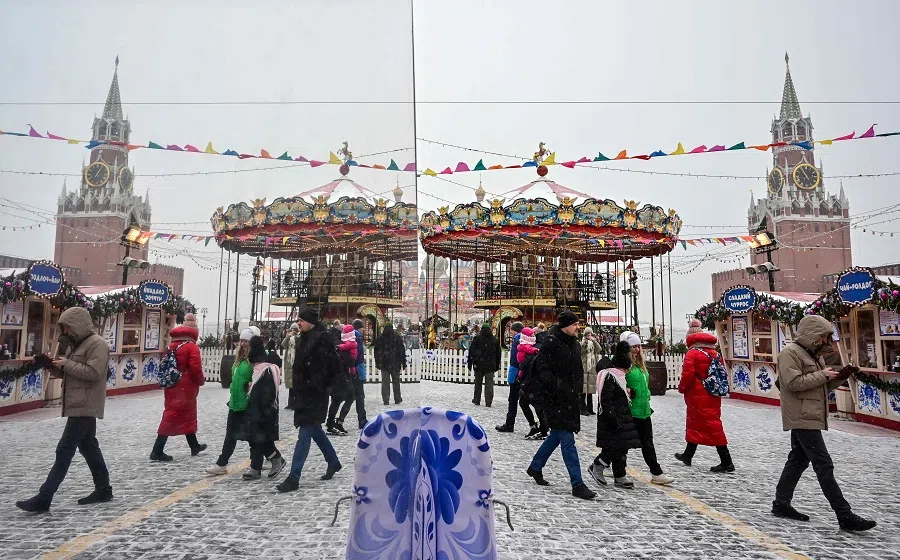
Nevertheless, the West will view China's global leadership as a challenge to the established order. While contending with Russia in Ukraine, the West is advocating decoupling from China. The suppression of Russia and China is driving the two nations closer to an alliance. The world will change dramatically if this alliance is formed, resulting in a battle for the Third World.
The China-Russia alliance will be in a much better position than the Eastern Bloc during the Cold War. It could withstand even the combined might of the West. However, this will be at the expense of China and Russia gradually lagging behind, as demonstrated by the fate of the communist states in the last Cold War. This time around, the consequence may well be the vanishing of the China dream and the derailment of its national rejuvenation.
Improving global image and finding acceptance
Therefore, it seems premature for China to assume global leadership due to the adverse external environment and a lack of proper and thorough preparation.
First, China must improve its global image. In recent years when its reputation is at its lowest in opinion polls in developed nations, China has proposed three global initiatives in a row, suggesting a sense of exuberance and high self-regard. This is a human pitfall, especially for major powers, as exemplified by the US which has over-committed and over-exerted itself in matters that please no one.
Second, China must endeavour to gain wider acceptance, especially among developed nations. This will be a lengthy, gradual process that requires great skill to subtly but surely transform their views on China. Instead of a revolution, it is an improvement of the current global order which China has benefited from. Misconceptions here can result in misjudgements.
No nation considers itself a threat to others. Human nature is such that nations view themselves positively and as a force for justice.
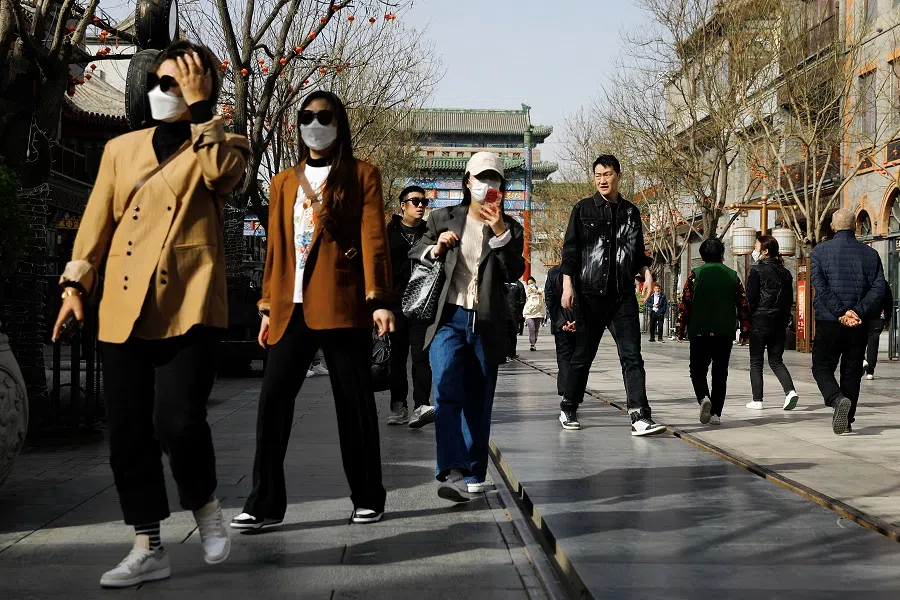
China appears not to understand why its emergence is perceived as an existential threat to other nations, and even feels that this perception is a fabrication to incite anti-China sentiments and is therefore not worth refuting. This attitude will easily lead one to a dead end. It must be taken seriously as it involves fundamental considerations of human nature and civilisation.
No nation considers itself a threat to others. Human nature is such that nations view themselves positively and as a force for justice. After the terrorist attacks on the World Trade Centre in New York City, a heated debate on "Why do they hate us?" erupted in the US. Although the issue is obvious to the Chinese and many people in other nations, this is a genuine question for the majority of good and upright Americans: why do you hate us when we so generously aid you to seek justice in your fight for human rights, democracy, freedom and equality?
Russophobia and Chinaphobia
Russia and China share the same concern too, as Russophobia and Chinaphobia are rather common among their neighbouring nations. Russian Foreign Minister Sergey Lavrov even joked about it in disbelief. Major powers tend not to understand the feelings of smaller nations and take them for granted. Empathy and an understanding of other nations are critical for good global leadership; otherwise, the major powers will be surprised by other nations switching sides out of fear and consider them ungrateful.
It is an axiom of Western civilisation that power leads to hegemony. It is meaningless for China to merely articulate that it wants to build a new model of major-power relations and a new global order. China must demonstrate real actions and consistently uphold them, otherwise, the ancient Chinese worldview of a "harmonious all under heaven" will be unconvincing.
In fact, Western nations tend to think of Chinese diplomacy as being closer to 19th century realism. Different cultural backgrounds lead to different understandings, and a clash of civilisations is the consequence.
Spreading malevolence in human nature?
A very true danger is the fighting philosophy vigorously advocated by the CCP, comprising the fighting spirit (斗争精神), the fighting ability (斗争本领) and the fighting will (斗争意志). They point towards malevolence in human nature and are inappropriate for the peaceful development and governance of a major power, especially in the era of the high-tech market economy when compliance with objective rules is emphasised.
At the same time, the fighting philosophy of Maoism is incompatible with the traditional Chinese concepts of harmony and peace.
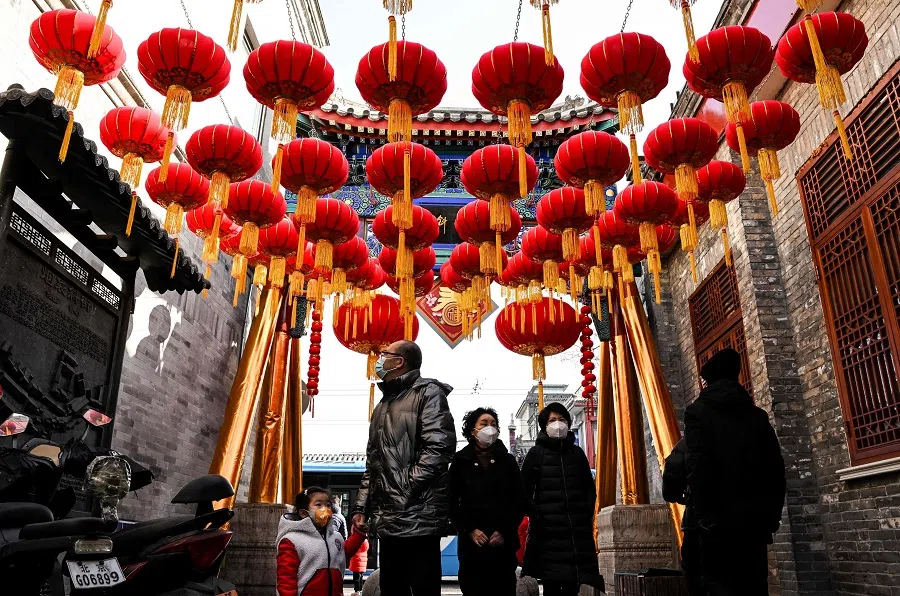
One main cause of domestic depletion in the US is the overly combative campaigning politicians and their nasty tactics, and the squabbling over non-issues that they could actually cooperate on. To them, politics is show-business.
China's Cultural Revolution was also a bitter, devastating struggle. At that time, "factionalism" was the major source of bloodshed and violence, against which even Mao was helpless. His lofty theory was: "There is no fundamental conflict of interests within the working class, so there is no need for the working class to split into two factions, especially under the dictatorship of the proletariat." However, the harsh reality is that he failed to understand that the theoretical sense of camaraderie between classes cannot overcome malevolence in human nature.
Factionalism is instinctive and has nothing to do with ideology and politics, except using these as outlets of expression. There is no clear boundary between a fight over matters of principle and a squabble. At the same time, the fighting philosophy of Maoism is incompatible with the traditional Chinese concepts of harmony and peace.
This article was first published in Lianhe Zaobao as "当头,还是不当头?这是个问题".
Related: China's big hurdles returning to the forefront of civilisation | [State of our world] China's future in a politicised world | Will China and Russia join hands to push for an alternative world order? | [State of our world] From Three Worlds to Four: Mao's revised theory of an emerging global order? | [State of our world] The world will be very different from the one we're used to



![[Big read] When the Arctic opens, what happens to Singapore?](https://cassette.sphdigital.com.sg/image/thinkchina/da65edebca34645c711c55e83e9877109b3c53847ebb1305573974651df1d13a)
![[Video] George Yeo: America’s deep pain — and why China won’t colonise](https://cassette.sphdigital.com.sg/image/thinkchina/15083e45d96c12390bdea6af2daf19fd9fcd875aa44a0f92796f34e3dad561cc)
